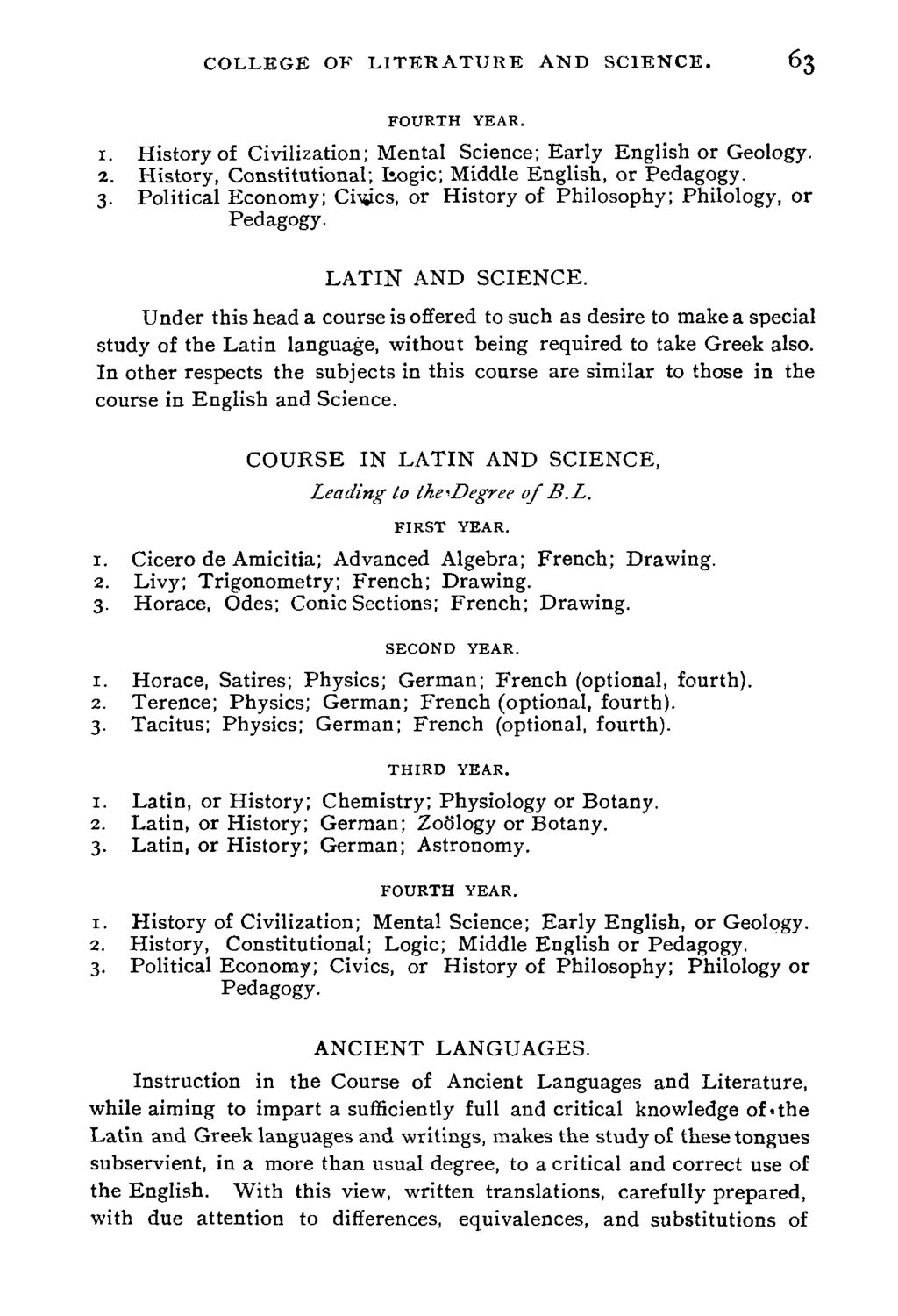| |
| |
Caption: Course Catalog - 1890-1891
This is a reduced-resolution page image for fast online browsing.

EXTRACTED TEXT FROM PAGE:
COLLEGE OF LITERATURE AND SCIENCE. FOURTH YEAR. 63 1. History of Civilization; Mental Science; Early English or Geology. 2. History, Constitutional; Iiogic; Middle English, or Pedagogy. 3. Political Economy; Civcs, or History of Philosophy; Philology, or Pedagogy. LATIN AND SCIENCE. Under this head a course is offered to such as desire to make a special study of the Latin language, without being required to take Greek also. In other respects the subjects in this course are similar to those in the course in English and Science. COURSE IN LATIN AND SCIENCE, Leading to the^Degree of B.L. FIRST YEAR. 1. Cicero de Amicitia; Advanced Algebra; French; Drawing. 2. Livy; Trigonometry; French; Drawing. 3. Horace, Odes; Conic Sections; French; Drawing. SECOND YEAR. 1. Horace, Satires; Physics; German; French (optional, fourth). 2. Terence; Physics; German; French (optional, fourth). 3. Tacitus; Physics; German; French (optional, fourth). THIRD YEAR. 1. Latin, or History; Chemistry; Physiology or Botany. 2. Latin, or History; German; Zoology or Botany. 3. Latin, or History; German; Astronomy. FOURTH YEAR. 1. History of Civilization; Mental Science; Early English, or Geology. 2. History, Constitutional; Logic; Middle English or Pedagogy. 3. Political Economy; Civics, or History of Philosophy; Philology or Pedagogy. ANCIENT LANGUAGES. Instruction in the Course of Ancient Languages and Literature, while aiming to impart a sufficiently full and critical knowledge of-the Latin and Greek languages and writings, makes the study of these tongues subservient, in a more than usual degree, to a critical and correct use of the English. With this view, written translations, carefully prepared, with due attention to differences, equivalences, and substitutions of
| |